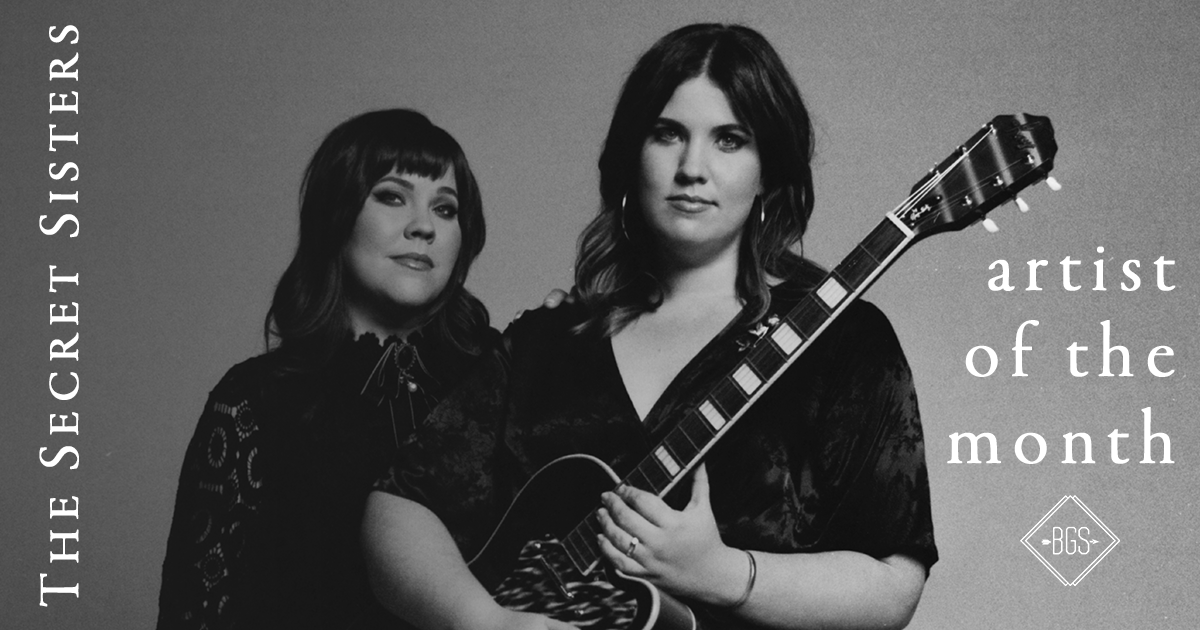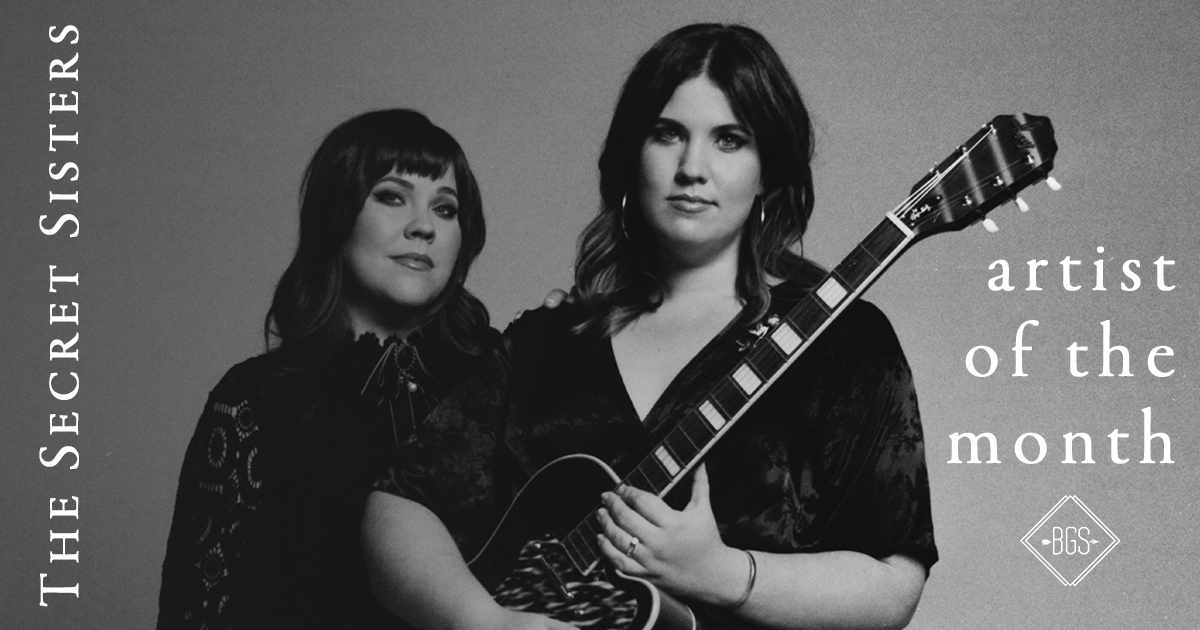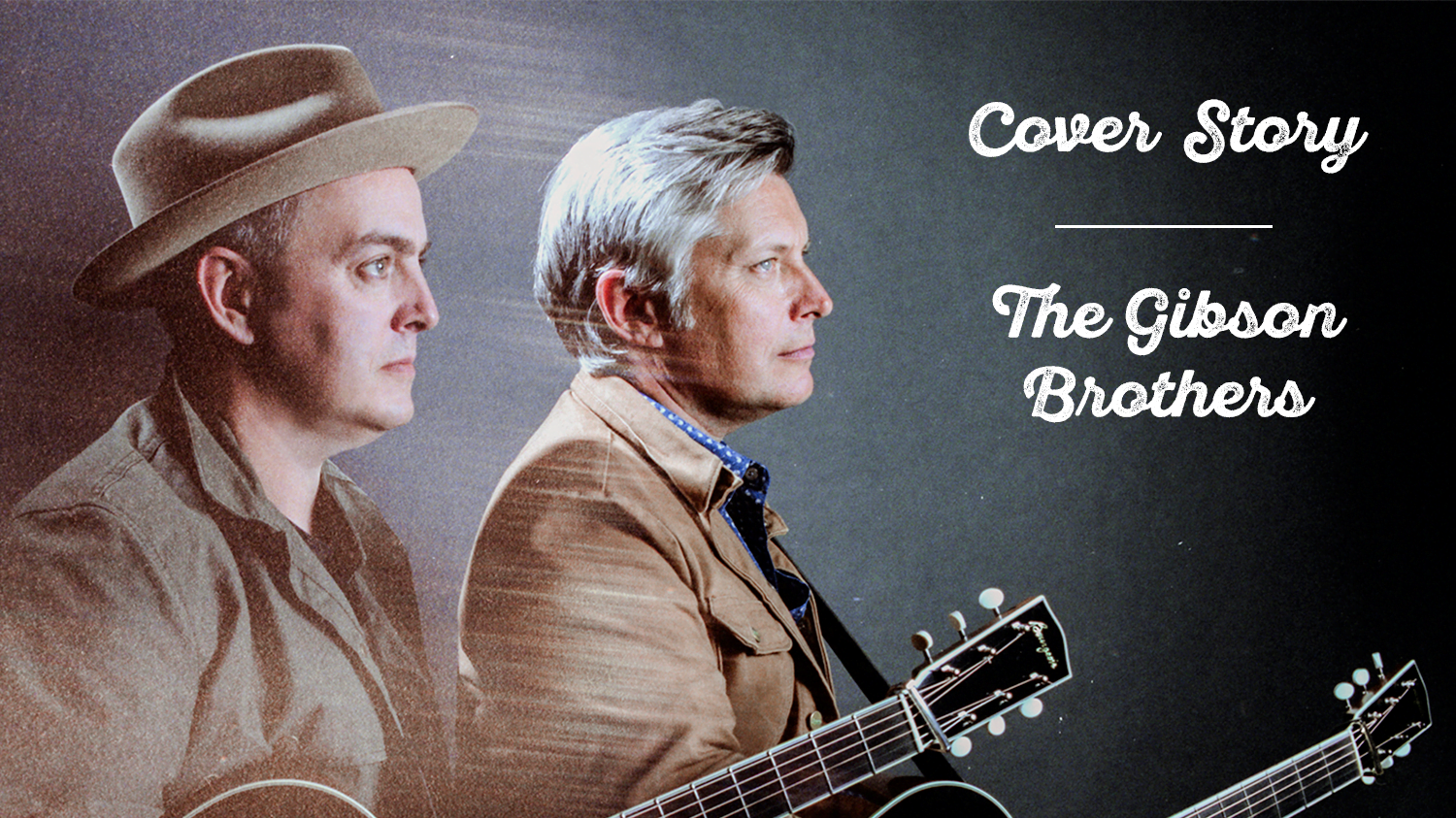Hearing the Secret Sisters sing captivates you immediately. Known best for their entrancing harmonies, the Alabama-born artists write songs about everyday hardships and headline-grabbing injustices, with a balance of poetry and punch in every lyric. It’s made fast fans of many, including Brandi Carlile, who called sisters Lydia Slagle and Laura Rogers in 2015 and offered to produce their next record, 2017’s You Don’t Own Me Anymore.
On the new Saturn Return, co-produced by Carlile and Phil and Tim Hanseroth, the duo expands beyond their well-known harmonies by exploring the previously untapped power that their voices have solo, recording many segments separately for the first time in their decade-long career. In a nod to that milestone, BGS spoke to each sister individually in advance of the album’s release. Here, Lydia Slagle talks about Carlile’s strength as a producer, finding hope despite hardship, and the distinct pride in being a late bloomer.
Tell me about your upbringing and your first memories with music.
We’re from rural Northwest Alabama. We grew up running through the woods and making forts and playing in the creek. We spent a lot of time outside with our cousins, and it was really family-oriented. Our dad is in a bluegrass band, so we were going to bluegrass festivals every Saturday. We went to church every Sunday, and the church that we grew up in was all congregational. Everybody sang together, so from a very early age, you had to learn to sing harmony.
You were the main writer on “Late Bloomer,” one of my favorite tracks from Saturn Return. Has anything ever made you feel like a late bloomer? How did you reframe that feeling with the positivity we hear in the song?
I’ve always felt a little bit behind. People in my grade, or my age… I always felt like they got there before I did. Part of that is being a Southern woman. I think that we are a little more pressured to have children faster, or get married at an earlier age. Even though I’d been all around the world, I still felt that pressure — I still felt behind. When I wrote “Late Bloomer,” my husband and I had been trying for a baby for almost a year. That particular day, I was just really frustrated with the whole situation. I thought, of course, this happens to me. I’ve been behind in every other aspect of my life, so of course I’m gonna be last for this, too — which sounds dramatic, I know…
No, it sounds… relatable.
Well, it was September, and I was at the piano looking out the window. I had been told that March or April was when I should hang my hummingbird feeders, because that’s when they’d come to the house. And I had not seen a hummingbird all year until the day I wrote this song. It made me start thinking about that aspect differently: they’re late coming to the party, so it’s OK for me to be, too. It’s OK to feel behind. Whatever timeline you set for yourself, it doesn’t matter, because we’re all on our own path. It was a really encouraging way to look at it. I’ve tried to look at it like that ever since.
Brandi Carlile produced your third album, You Don’t Own Me Anymore, and you chose to work with her again on Saturn Return. What made her the right person to produce this album?
We had a lot of fun with our third record. Not that we didn’t with our others, but we were so serious in the beginning, so concerned with being perfect, with having every note be exactly right. With the third record, we were this big family, just playing music together, just jamming. We really wanted to have that same experience again with the fourth record, especially because we had gone through some stuff before this record that was really hard. I was struggling with infertility; I didn’t really understand what was going to happen with our careers. We needed the positivity that Brandi tends to bring to a situation. She always helps us remember that we do this for a reason — and that we’re good at it. It was a really great communal effort, and I would say we were more comrades this time around. It felt like a bunch of friends playing together.
She recommended you and Laura record your vocals separately for the first time ever. What was going through your mind, from the first time you tried it to when you heard it played back?
It felt like an out-of-body experience in so many ways, just because we were so used to singing at the same time, into the same mic. So it was a new, refreshing experience to remember that we are separate people, with our own voices and our own things to say. That’s what Brandi is so good at doing — helping us remember what our talents are. It was a really important part of this recording process itself: finding our own voices and being who we are separately, but still being a band; and learning how to still sing together, even when we have our own perspectives to draw from.
As the album’s closing track, “Healer in the Sky” has a deeply spiritual and peaceful theme — a message of hope. Through the making of this record, what’s something that made you feel hopeful?
Even though we were on separate paths, Laura and I, there was a common thread going through our situations when we were recording. We were kind of settling into adulthood. Our grandmothers had just passed away within a week of each other, and we could see that our parents are getting older and going through health issues. We were both at a time in our lives when we were trying to reconcile things that don’t seem fair, seeing how other people around us have struggled. The reality of adulthood had set in, and you can hear that in a lot of the songs on the record.
But what gives us hope is that we’re people of faith. You do hear it especially on “Healer in the Sky” — we try to remember that we have a bigger hope, and we have a reason for why we do this. It’s easy to get ‘in our heads’ about things that seem hard at the time, but when you look at the grand scheme of things, those things are usually actually pretty petty. So for us, it’s been important to remember our purpose, and to just try to be good people along the way. That’s all that really matters.
Read the first part of our Artist of the Month interview with the Secret Sisters’ Laura Rogers.
Photo credit: Alysse Gafkjen


